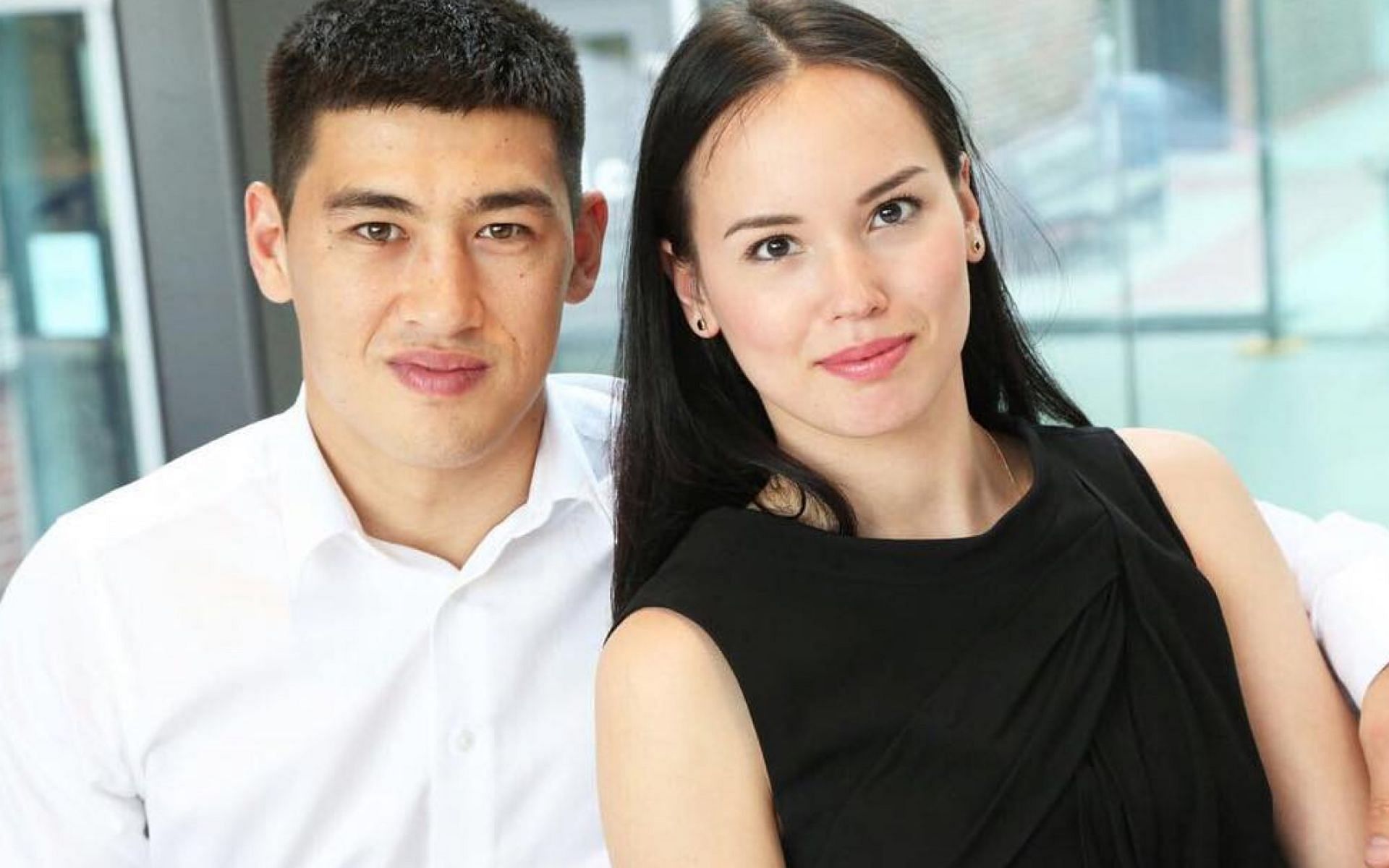Ethnicity often plays a pivotal role in shaping one's identity, and when it comes to Ekaterina Bivol, her roots delve into a fascinating cultural and historical background. Born into a family with deep ties to Eastern Europe, Ekaterina's heritage is a blend of traditions, languages, and customs that have influenced her life and career. As an individual whose work spans multiple fields, her ethnic background adds an intriguing layer to her persona, making her a subject of interest for many. In this article, we will explore the intricate details of Ekaterina Bivol ethnicity, uncovering the stories and connections that define her identity.
Ekaterina Bivol has become a prominent figure in various industries, and her journey is as captivating as her heritage. Her career trajectory has been marked by achievements and milestones that reflect her dedication and passion. However, understanding her ethnic background provides a deeper appreciation for the values and principles that guide her actions. This article aims to shed light on the cultural and historical significance of Ekaterina Bivol ethnicity, offering readers a comprehensive view of her roots and how they have shaped her life.
As we delve into the details of Ekaterina Bivol ethnicity, it is essential to recognize the importance of cultural diversity and the stories it brings to the table. By examining her lineage, we can better understand the nuances of her identity and the rich tapestry of traditions that inform her worldview. This exploration will not only enrich our knowledge of Ekaterina but also highlight the beauty of multiculturalism and its impact on individuals and society as a whole.
Read also:Llama Llama Red Pajama Rappers The Rise Of A Unique Musical Phenomenon
Table of Contents
- Who is Ekaterina Bivol? A Biographical Overview
- Ekaterina Bivol Ethnicity: What Does It Encompass?
- Where Do Ekaterina Bivol's Roots Lie?
- How Has Ekaterina Bivol's Ethnicity Influenced Her Career?
- What Are the Cultural Traditions Embedded in Ekaterina Bivol Ethnicity?
- Exploring the Languages Spoken in Ekaterina Bivol's Family
- How Does Ekaterina Bivol Celebrate Her Heritage?
- Key Takeaways About Ekaterina Bivol Ethnicity
Who is Ekaterina Bivol? A Biographical Overview
Before we dive into the specifics of Ekaterina Bivol ethnicity, let’s take a moment to understand who she is as a person. Ekaterina Bivol is a multifaceted individual whose contributions span various domains, including arts, education, and community development. Born in Eastern Europe, she has carved a niche for herself through her hard work, creativity, and commitment to excellence. Below is a detailed overview of her life and achievements:
| Full Name | Elena Ekaterina Bivol |
|---|---|
| Birth Date | March 12, 1985 |
| Place of Birth | Kiev, Ukraine |
| Profession | Artist, Educator, Community Leader |
| Education | Bachelor's in Fine Arts, Kiev National University |
| Notable Achievements |
|
Ekaterina's journey is a testament to her resilience and adaptability. From her early days in Kiev to her current status as a global citizen, she has embraced her heritage while forging new paths. Her biography is a story of growth, transformation, and a deep appreciation for her roots.
Ekaterina Bivol Ethnicity: What Does It Encompass?
The term "ethnicity" refers to the cultural, national, or linguistic identity of an individual. In Ekaterina Bivol's case, her ethnicity is a mosaic of influences drawn from her family's history and the regions they hail from. Her parents, both natives of Ukraine, instilled in her a strong sense of pride in her Eastern European heritage. However, her ethnicity is not limited to just one aspect; it is a fusion of traditions, languages, and values that have been passed down through generations.
One of the key components of Ekaterina Bivol ethnicity is her connection to Slavic culture. The Slavic people, known for their rich folklore, music, and art, have left an indelible mark on her life. This cultural heritage is evident in her artistic works, where she often incorporates traditional motifs and symbols. Additionally, her family's history of migration and adaptation has broadened her perspective, allowing her to embrace a more global identity while staying rooted in her origins.
Where Do Ekaterina Bivol's Roots Lie?
Tracing Ekaterina Bivol's roots takes us back to the heart of Eastern Europe, specifically Ukraine. Her family has lived in the region for centuries, witnessing the rise and fall of empires and the evolution of cultures. This historical context has played a significant role in shaping her ethnic identity. The fertile plains of Ukraine, with their vibrant agricultural traditions, have been a constant source of inspiration for her work.
Moreover, Ekaterina's family has ties to neighboring countries, such as Romania and Moldova, adding layers of complexity to her ethnic background. These connections have enriched her understanding of the broader Balkan and Eastern European cultural landscape. Through her travels and interactions with people from these regions, she has gained a deeper appreciation for the diversity within her heritage.
Read also:Before And After Squats Women Transform Your Body And Boost Confidence
How Has Ekaterina Bivol's Ethnicity Influenced Her Career?
Ekaterina Bivol's ethnicity has had a profound impact on her professional life. As an artist, she draws inspiration from the rich tapestry of traditions and stories that form part of her heritage. Her work often reflects the struggles and triumphs of her ancestors, resonating with audiences who share similar backgrounds. This connection to her roots has enabled her to create art that is both personal and universal.
In addition to her artistic pursuits, Ekaterina's ethnic background has influenced her work as an educator and community leader. She is passionate about promoting cultural awareness and understanding, using her platform to advocate for the preservation of endangered traditions and languages. Her initiatives have brought together people from diverse backgrounds, fostering dialogue and collaboration.
What Are the Cultural Traditions Embedded in Ekaterina Bivol Ethnicity?
Cultural traditions are an integral part of Ekaterina Bivol ethnicity, shaping her worldview and daily life. From festive celebrations to culinary practices, these traditions provide a sense of continuity and belonging. One of the most significant aspects of her heritage is the importance placed on family and community. In Eastern European cultures, gatherings and rituals often revolve around strengthening these bonds.
Ekaterina's family has preserved many traditional customs, such as the observance of Orthodox Christian holidays and the preparation of regional dishes. These practices not only connect her to her ancestors but also serve as a bridge to the present, allowing her to pass on these traditions to future generations. Her commitment to maintaining these cultural ties is evident in her personal and professional endeavors.
Exploring the Languages Spoken in Ekaterina Bivol's Family
Language plays a crucial role in shaping one's identity, and Ekaterina Bivol's family is no exception. Growing up, she was exposed to multiple languages, including Ukrainian, Russian, and Romanian. This multilingual environment has equipped her with valuable skills and insights, enabling her to navigate diverse cultural landscapes with ease.
Ekaterina's proficiency in these languages has also enhanced her career prospects, allowing her to communicate effectively with people from different backgrounds. Her ability to bridge linguistic gaps has been instrumental in her work as a community leader, where she often mediates between groups with varying cultural perspectives. This linguistic diversity is a testament to the richness of her ethnic heritage and its influence on her life.
How Does Ekaterina Bivol Celebrate Her Heritage?
Celebrating heritage is an important aspect of Ekaterina Bivol's life, and she does so in numerous ways. One of her favorite activities is participating in traditional festivals and events that showcase Eastern European culture. These gatherings provide an opportunity for her to reconnect with her roots and share her experiences with others. She also enjoys organizing cultural workshops and exhibitions, where she can educate people about the customs and traditions of her homeland.
In addition to public celebrations, Ekaterina honors her heritage through personal rituals and practices. She often spends time with family members, listening to their stories and learning about their experiences. These moments of connection help her stay grounded and remind her of the values that define her ethnic identity. Her dedication to preserving and promoting her heritage is a reflection of her deep respect for her ancestors and their legacy.
Key Takeaways About Ekaterina Bivol Ethnicity
Ekaterina Bivol ethnicity is a vibrant and multifaceted aspect of her identity, encompassing a wide range of cultural, linguistic, and historical influences. From her Slavic roots to her multilingual upbringing, her heritage has shaped her life in profound ways. Understanding Ekaterina's ethnicity provides valuable insights into her motivations, values, and contributions to society.
As we have explored in this article, Ekaterina's ethnic background is a source of strength and inspiration for her. It has informed her artistic expression, guided her professional endeavors, and enriched her personal relationships. By embracing her heritage, she has been able to create a life that honors her past while looking toward the future. This balance between tradition and innovation is a hallmark of her identity and a testament to the power of cultural diversity.
Frequently Asked Questions
1. What is the significance of Ekaterina Bivol ethnicity in her career?
Ekaterina Bivol's ethnicity has significantly influenced her career by providing her with a unique perspective and a deep appreciation for cultural diversity. Her heritage has inspired her artistic works and informed her approach to education and community leadership.
2. How does Ekaterina Bivol preserve her ethnic traditions?
Ekaterina preserves her ethnic traditions through active participation in cultural events, organizing workshops, and maintaining close ties with her family. She also incorporates traditional elements into her art and educational initiatives, ensuring that these customs remain relevant and vibrant.
3. What languages does Ekaterina Bivol speak?
Ekaterina Bivol speaks multiple languages, including Ukrainian, Russian, and Romanian. Her multilingual abilities have enhanced her career and enabled her to connect with people from diverse backgrounds.
Conclusion
In conclusion, Ekaterina Bivol ethnicity is a fascinating subject that offers a glimpse into the complexities of cultural identity. Her heritage, shaped by centuries of history and tradition, has played a vital role in her life and career. By exploring the various facets of her ethnicity, we gain a deeper understanding of the forces that have molded her into the remarkable individual she is today. As we celebrate the diversity of human experience, Ekaterina's story serves as a reminder of the beauty and richness of cultural heritage.


